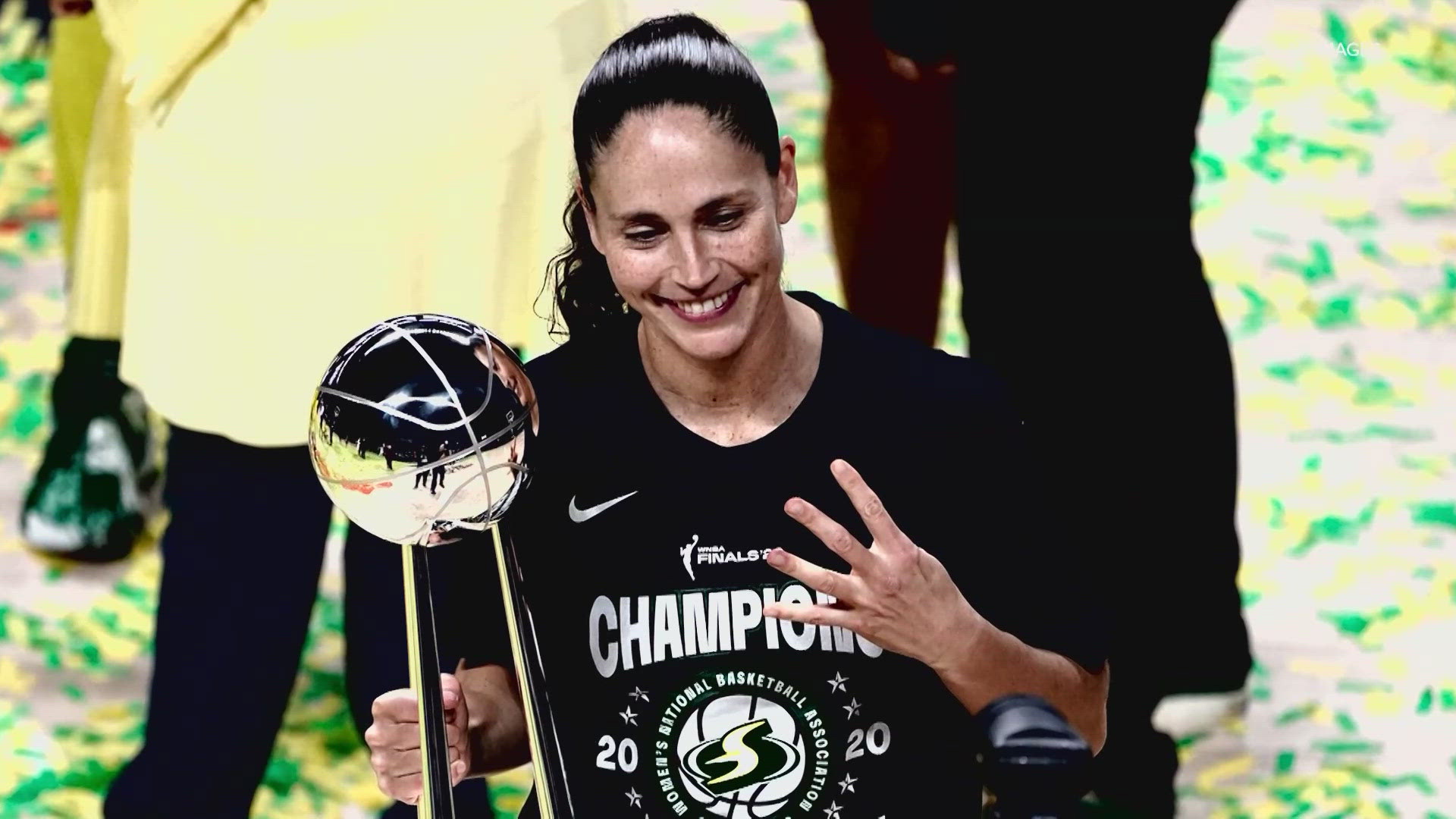SEATTLE — Her name is synonymous with Seattle basketball greatness.
Sue Bird — a five-time Olympic gold medalist, four-time WNBA champion with the Seattle Storm, and newly minted Hall of Famer — is stepping into a brand-new role.
She went on the record, sharing why she said yes to becoming the first-ever managing director of the USA Women’s Basketball Team.
We spoke with her about how she hopes to continue Team USA’s golden legacy.
Sue: These are memories that have stayed with me forever — representing your country and being able to do that on that stage, the Olympics as well as the World Cups I’ve played in. There’s really nothing like it.
Joyce: What motivated you to take this job?
Sue: When the opportunity presented itself to continue being part of this program — albeit in a different, more supportive role — I really couldn’t pass it up.
Joyce: How are you going to transition from being a player on the court to shaping the future of the national team in this executive role?
Sue: I’m going to do it in a way that’s authentic to me. No, I haven’t been a GM before, and I haven’t been a coach. But I’ve played for many coaches, on many teams, in many countries for many years. I think I can help bridge the gap for players who are just starting their USA Basketball journey and create a place where they can feel comfortable — and hopefully play their best.
Joyce: What qualities are you going to be looking for in building a winning roster?
Sue: The good news is we have an embarrassment of riches in this country when it comes to talent. First and foremost, we’ll pick a coach. Then we’ll hold training camps and qualifiers — and I’ll get to spend time with the players again, watch them, assess, and try to put together a group of talented athletes who complement each other. The ultimate goal is always gold medals.
Joyce: What lessons from your playing career do you hope to apply to leadership and management?
Sue: You have to find ways to form that chemistry quickly. From a player standpoint, a lot of it is understanding your role, understanding that it might not be the same role that you have on your WNBA or club team. I experienced that firsthand, and it can be uncomfortable. That’s the first message I'm going to give: This might be hard, and it's OK if it feels uncomfortable. It means you're doing it right.
Joyce: Are you feeling the pressure of maintaining that gold-medal standard that defines USA Women’s Basketball?
Sue: Absolutely. It's been since I first put on that jersey myself. There's pressure to keep the history, the legacy, going. That's the beauty of sport.
Joyce: You have been a visible advocate for equality and representation in the sport. Your relationship with Megan Rapinoe has been public ever since you both came out and got engaged as two of the most visible LGBTQ+ athletes. What does it mean to you to represent not only women in sports but also the queer community on a global stage?
Sue: Visibility is so important. I didn't have that growing up — a queer person in the world of women's sports or just a women's basketball player. I can be one of those people who can inspire and just get somebody to be a little bit more comfortable in themselves. Hopefully I'm paying it forward for the next generation, and they'll take it from here.
Joyce: You have broken so many different barriers. You talked about freezing your eggs a few years back. What advice would you give to other women not ready to start a family?
Sue: I didn't do it till I was 37 or 38. I wish I’d done it sooner.
I look at the work that WNBA has done — we actually have a stipend — hopefully we will move forward with family planning. That's really what it's about — having more choice.

